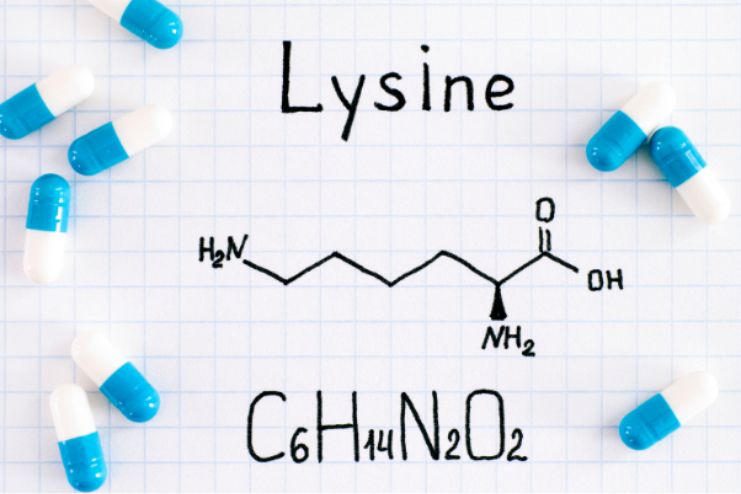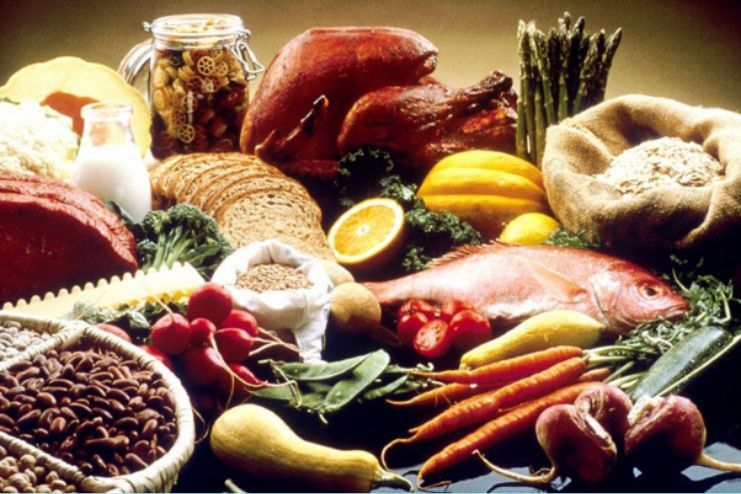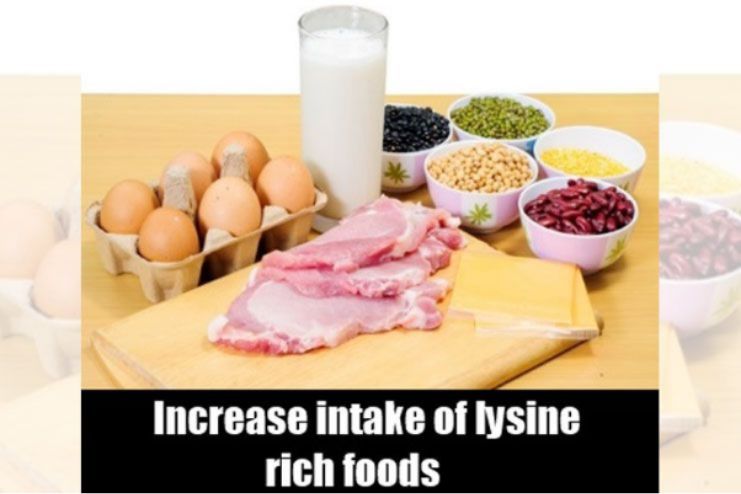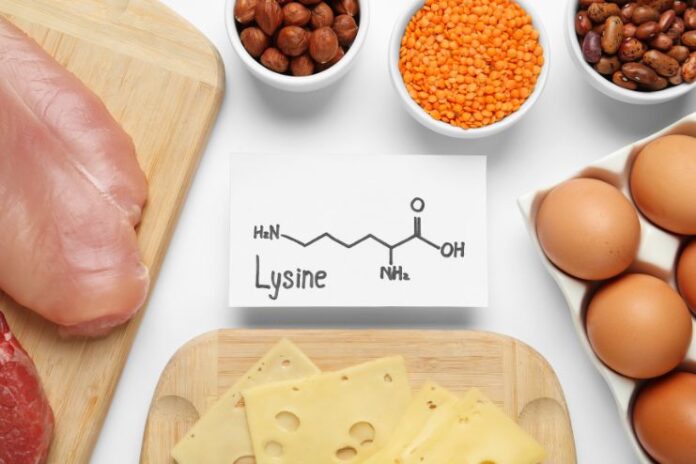Affiliate Disclaimer
Some links in this article are affiliate links. We may earn a small commission if you make a purchase through these links, at no extra cost to you. We only recommend products we find useful to our readersLysine, or L-lysine, is a building block for making proteins in the body. It is a vital amino acid necessary for human health since the body cannot produce it. Lysine is essential in the production of carnitine, which converts fatty acids into energy and reduces cholesterol. Lysine also helps in calcium absorption and plays a key role in collagen synthesis. Collagen is essential for bones and connective tissues like skin, tendons, and cartilage.
Including lysine in your daily routine is not just beneficial but also recommended. Here are two main ways wherein you can effectively make lysine a part of your health journey:
Oral use: Lysine is considered safe for most people when taken in doses of up to 3,000 mg daily for up to one year. However, it may cause side effects such as stomach pain and diarrhea.
Topical use: When applied to the skin, lysine is primarily safe for everyone, provided it is used briefly.
Read More: 8 Superfoods You Haven’t Tried Yet (But Totally Should!).
What is Lysine?
As we know, lysine is an amino acid that is an essential building block for our body. The most crucial part of Lysine is stimulating collagen production in our body. Lysine is not produced in our body, which makes it essential to consume foods high in lysine to maintain our amino acid levels.
Benefits Of Lysine

Lysine helps our body in various ways. And here are a few significant benefits of Lysine.
1. Bone Firmness:
Lysine helps our body absorb calcium, thus increasing bone firmness. The calcium-collagen duo helps prevent bone loss.
2. Boosts Collagen:
One of the primary benefits of lysine is that it boosts collagen production. This helps maintain amino acids in the body as well. Since collagen is the most abundant protein in our body, lysine helps retain it for proper bodily functions.
Read More: Collagen vs. Hyaluronic Acid: Which One Is Better for Anti-Aging?
3. Reduces Anxiety:
Lysine is also believed to reduce anxiety in men and reduce stress in women. Lysine can block serotonin receptors. Serotonin is called the happy hormone and thus prevents anxiety and stress. Lysine also helps people with schizophrenia and related disorders.
4. Treats Herpes:
Lysine helps treat herpes. It has antiviral effects by blocking the activity of arginine, which promotes HSV replication. One review found that oral lysine is more effective at preventing an HSV outbreak than reducing the severity and duration of an epidemic.
Read More: 17 Home Remedies For Herpes That Works Wonders.
5. Regulates Diabetes:

Lysine has been shown to regulate blood sugar through its effects on insulin secretion and glucose metabolism. Animal models indicate that lysine decreases blood sugar levels and retards the development of diabetic complications. It also decreases glycated protein formation, which plays a role in conditions such as cataracts. In some studies, Lysine has been seen to reduce fasting blood glucose levels. It also increased insulin and glucagon secretions.
6. Reduces Pancreas Inflammation
Lysine also reduces inflammation of the pancreas. Studies have shown that L-lysine reduces pancreas injuries by suppressing inflammation and increasing antioxidant activity.
7. Increases Bone Strength:
According to current research, lysine promotes bone strength by supporting calcium absorption, lowering urinary calcium excretion, and encouraging collagen synthesis.
8. Promotes Children’s Growth:
Lysine significantly functions in protein building and tissue formation, promoting children’s growth. If dietary levels are sufficient, it aids in growing height and weight, especially in areas with poor diets in lysine-containing protein foods such as meat and legumes.
9. Promotes Skin Health:
Lysine benefits skin health by enhancing collagen production, tissue repair, and wound healing. It preserves skin elasticity, minimizes scarring, and can help control acne by balancing oil production. Adding lysine-rich foods or supplements can help you have healthier and glowing skin.
Read More: How to Build a ‘Skinimalist’ Routine Without Sacrificing Results.
Side Effects of Lysine:
Though lysine has various benefits, it also comes with specific side effects. Here are a few side effects you must be careful of while using lysine:
- People with liver or kidney impairment must avoid lysine.
- Pregnant and lactating mothers use lysine only after consulting their OB-GYN.
- Lysine may increase Aminoglycoside toxicity due to increased calcium absorption in people who take calcium supplements. Therefore, they must avoid taking lysine.
- Diarrhea, nausea, and abdominal pain are a few side effects of lysine experienced by few people taking it.
- Some people have even reported kidney disorders like Fanconi syndrome.
Foods High in Lysine:

If you wish to include lysine in your diet, we have a list of a few ingredients that must not be missed. Here are a few high-lysine foods that you must include in your dietary routine:
1. Cheese:
Cheese is loved by all and is rich in proteins, vitamins, and minerals. It is also considered an anti-cancer food. Parmesan cheese is a good source of milk-based proteins and contains 45% of the recommended dietary intake (RDI) of lysine per ounce.
2. Oily and Fatty Fish Like Tuna:
Oily fish contains many essential proteins, vitamins, and minerals. It also contains omega-3 fatty acids and Lysine, making these fish a superfood for us. Canned tuna is a nutritious source of lysine, with 2071 mg per 3 ounces.
3. Roasted Beef:
Beef contains reasonable amounts of protein, vitamins, minerals, and fat. A 6-ounce serving of beef tenderloin includes 5619 milligrams of lysine, making it a good option.
4. Lean Chicken Breast:
Chicken overall contains reasonable amounts of vitamins, minerals, and proteins. It is one of the best sources of dietary protein; mainly, the lean chicken breast contains 250% Lysine RDI
5. Lean Pork Chop:
Pork is high in protein and contains most essential vitamins, minerals, and amino acids, which are fantastic for health. A 6 oz of lean pork chop has a 231% lysine RDI
6. Cooked Shrimp:
Shrimp is a kind of seafood primarily made up of water and proteins. It also has a rare property: despite being an animal protein, it contains antioxidant properties. A 3 oz serving of cooked shrimp contains about 1846 mg of lysine, 88% of the RDI.
7. Pumpkin Seeds:

Pumpkin seeds are a powerhouse of nutrition. As a plant-based protein, they are rich in antioxidants, minerals, and especially Lysine. About one ounce of pumpkin seeds contains 0.5 grams of lysine.
8. Raw Eggs:
Eggs are a rich source of proteins. They also contain minerals and a few vitamins. Lysine was found to be 929, 1182, and 760 mg/100 mg in fresh whole eggs, yolk, and albumen, respectively.
9. White Beans:
Unlike other plant-based legumes, beans contain a good amount of lysine. Cooked white beans, 100 grams, have 668 mg ( 32%) of lysine’s RDI.
10. Cooked Turkey Breast:
Turkey may not just be a traditional festival food but a truly hearty and healthy delight. It is especially rich in proteins, and the cooked turkey breast contains 180% of the recommended daily intake of Lysine.
Lysine Supplements To Consider:
Experts say lysine works best when taken with water on an empty stomach. Researchers estimate that a 70-kilogram (kg) person can consume up to 3,000 mg of lysine per day for a year if taken orally. A person’s body weight affects how much they need: 12 mg/kg of body weight for adults.
As mentioned earlier, lysine has proven to be effective in maintaining skin and overall health. L-lysine can be used to treat acne either orally or externally. Lysine promotes collagen production, helping the skin repair its tissues and cells damaged by acne.
L-lysine supplements are also prescribed for acne. L-lysine helps create another amino acid called Carnitine, which transports fatty acids across cell membranes for oxidation. Carnitine is significant in converting fatty acids within the body into energy and also absorbs calcium.
Here is one of the most loved and trusted lysine supplements.
Final Thoughts:
All in all, we must all consume these above-lysine-rich foods to enable health and wellness. These foods high in lysine are great for any health condition and lifestyle choice. The foods rich in lysine include vegetarian and non-vegetarian choices thus making it a good variety. Include these foods that contain lysine and prevent some of the most painful health hazards. If you do not have enough lysine in your diet, consider taking supplements to maintain balance.
-
Jan 2018Written by Minu Manisha
-
Feb 2025Edited by Vaishnavi
References
- https://pmc.ncbi.nlm.nih.gov/articles/PMC6419779/
- https://whole30.com/article/plant-based/benefits-of-lysine/
- https://pubmed.ncbi.nlm.nih.gov/1486246/
- https://pmc.ncbi.nlm.nih.gov/articles/PMC9484891/
- https://tools.myfooddata.com/protein-calculator/171971/wt1/1
- https://whole30.com/article/plant-based/benefits-of-lysine/
- https://tools.myfooddata.com/protein-calculator/171971/wt1/1
- https://www.myfooddata.com/articles/high-lysine-foods.php
- https://www.webmd.com/vitamins/ai/ingredientmono-237/lysine
In this Article


















